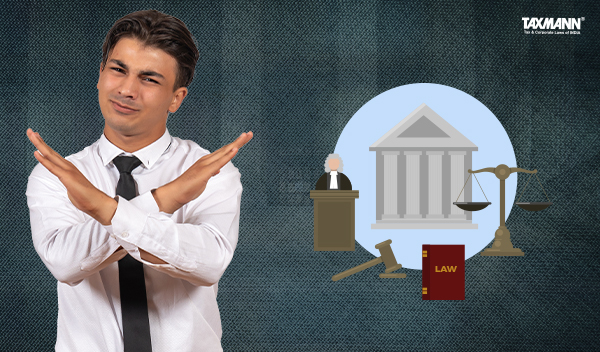HC’s Interference in SARFAESI Act Matters Should Be Minimal | Petitioner’s Bid to Quash Sale Proceedings Rejected
- Blog|News|FEMA & Banking|
- 2 Min Read
- By Taxmann
- |
- Last Updated on 15 April, 2024

Case Details: Oswal (India) v. State Bank of India - [2024] 161 taxmann.com 409 (HC - Punjab & Haryana)
Judiciary and Counsel Details
- Mrs Lisa Gill & Harpreet Singh Brar, JJ.
- Anand Chibbar, Sr. Adv. & Ms Khyati Avnish, Advs. for the Petitioner.
Facts of the Case
In the instant case, due to financial indiscipline, the account of the borrower was declared ‘Non-Performing Asset’ (NPA) and proceedings under the SARFAESI Act were initiated against the borrower by the bank.
A sale notice for the auction of immovable secured assets of the borrower was published, wherein it was mentioned that the property in question was free from encumbrances.
The Petitioner (i.e. the Firm) participated in the e-auction and was declared a successful bidder in the auction. A sum of Rs.4.34 crore was deposited by the petitioner being 58.94% of the bid amount. This deposit was duly accepted by the bank resulting in the petitioner being declared as the successful bidder in the sale proceedings.
It was submitted that while the petitioner was in the process of mobilizing the remaining funds, it came to its notice that the property in question was encumbered. The sale was claimed to be violative of provisions of the SARFAESI Act as well as rules 8(6)(A) and (F) and 8(7) of the Security Interest (Enforcement) Rules, 2002. Thus, the petitioner filed an instant petition for quashing the sale notice.
It was noted that the SARFAESI Act is a complete code in itself providing specific remedies for any grievance which may arise on account of proceedings taken thereunder. Further, interference by the High Court in such cases has to be minimal and actuated only in extraordinary or exceptional circumstances.
Further, a reference in this regard was made to the judgment of the Hon’ble Supreme Court in Union Bank of India v. Satyawati Tandon and others, 2010(8) SCC 110 , wherein it was held that both the Tribunal and the Appellate Tribunal are empowered to pass interim orders under Sections 17 and 18 and are required to decide the matters within a fixed time schedule.
High Court Held
The High Court held that the remedies available to an aggrieved person under the SARFAESI Act are both expeditious and effective. Ordinarily, the High Court will not entertain a petition under Article 226 of the Constitution if an effective remedy is available to the aggrieved person. This rule applies with greater rigour in matters involving the recovery of taxes, cess, fees, other types of public money and the dues of banks and other financial institutions.
Therefore, the instant petition was to be dismissed with the liberty to the petitioner to avail the remedies as available to it in accordance with the law.
Disclaimer: The content/information published on the website is only for general information of the user and shall not be construed as legal advice. While the Taxmann has exercised reasonable efforts to ensure the veracity of information/content published, Taxmann shall be under no liability in any manner whatsoever for incorrect information, if any.



 CA | CS | CMA
CA | CS | CMA
